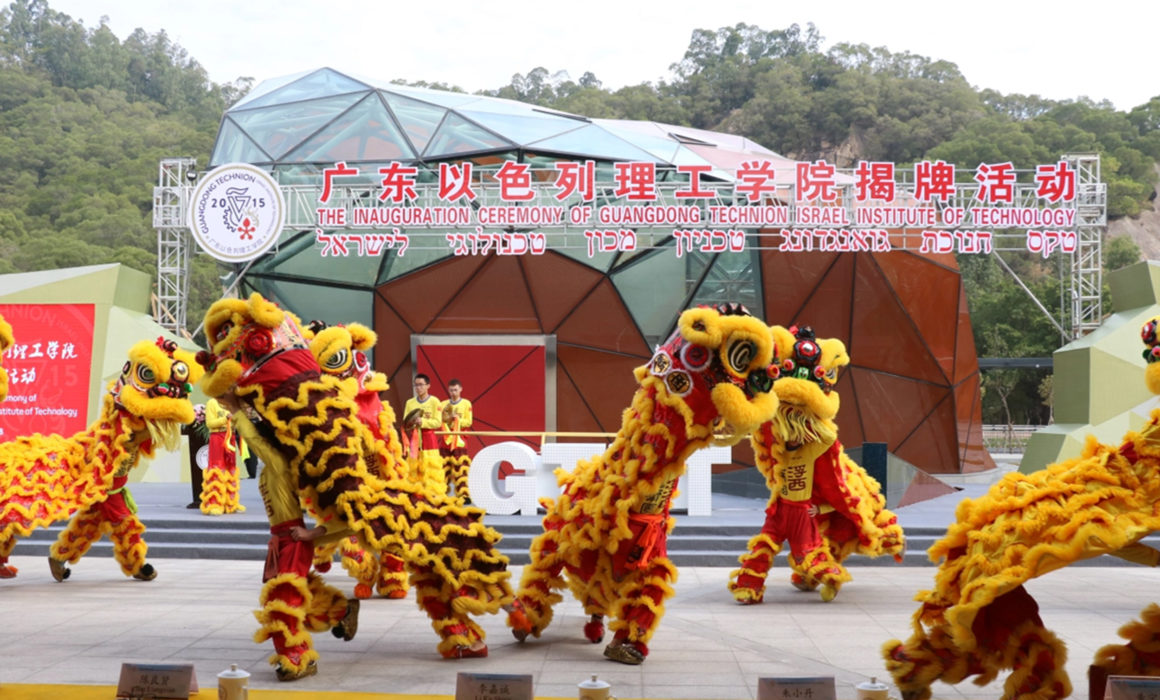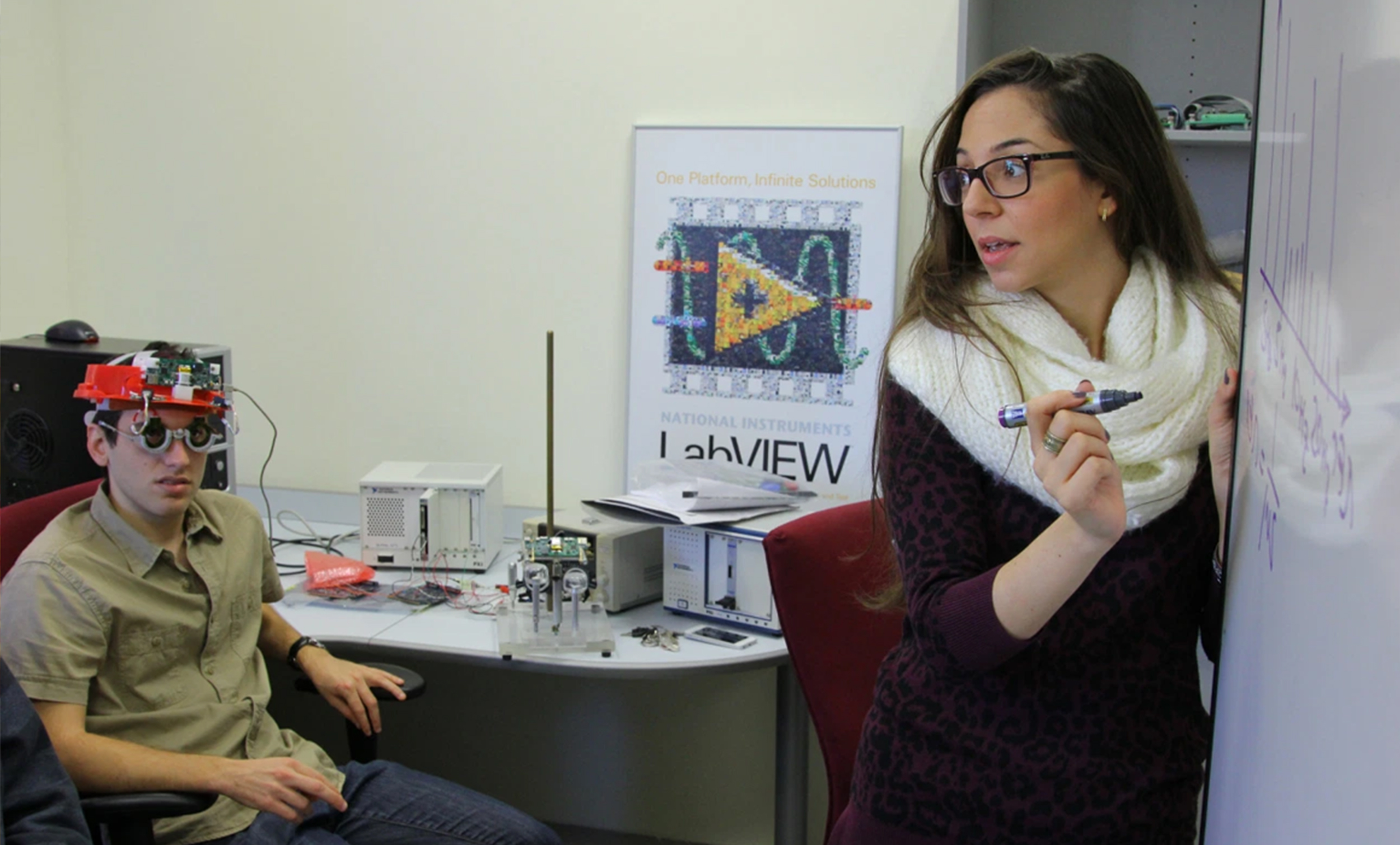During the final quarter of 2017 alone, Technion achieved what feels like many years’ worth of breakthroughs, awards, and milestones in its global partnerships, which are saving lives, creating jobs, and advancing the bounds of human knowledge in so many fields.
Here’s a quick review of some of the most exciting highlights from 2017, which offer a glimpse into the kind of transformative innovation we can expect in the year ahead.
An Israeli university in China
Israel’s population is less than 9 million, and China’s is more than 1.4 billion. Yet the two nations are true partners in the Guangdong Technion-Israel Institute of Technology (GTIIT), which was inaugurated on Dec. 18 as the first Israeli university in China. The result of a historic partnership between Technion, the Li Ka-shing Foundation, the Guangdong Provincial Government, and the Shantou Municipal Government, the new university will train an elite group of scientists and engineers in disciplines related to the environment.
A starfish creates ceramics
An international research team led by Technion’s Department of Materials Science has discovered how a brainless brittle star can create material like tempered glass underwater at ambient conditions. The discovery may open new bio-inspired routes for toughening brittle ceramics in various applications.
The world’s leader in digital education
A recent survey of representatives from leading global companies that was published by Times Higher Education identified Technion as the world’s leading academic institution when it comes to preparing students to take top positions in the digital revolution. Technion came in ahead of the University College of London, the Korea Institute of Science and Technology, and the Massachusetts Institute of Technology in the top 10 of the rankings, once again proving that Israel punches far above its weight in global innovation.
Stemming the rise of antibiotic resistance
Team Prismatix — a collaboration between Technion and the Bnai Zion Medical Center — earned the Longitude Prize Fund’s Discovery Award for making promising developments in rapid diagnostics for antimicrobial resistance. The Israeli team developed technology that provides a determination of antibiotic resistance in less than three hours — the first step towards a point-of-care diagnostic test that will conserve antibiotics for future generations and revolutionize the delivery of global healthcare.
Helping paralyzed rats walk again
A group led by Technion researchers successfully repaired completely severed spinal cords in paralyzed rats, giving them the ability to walk again. The researchers hope that once follow-up studies are conducted, the technology utilized to restore mobility for the rats can be applied to treating humans’ spinal cord injuries.
Producing Point-of-Sale Hydrogen
Technion researchers are using solar energy to make hydrogen from water, which will make possible the production of hydrogen in a safe, centralized manner at the point of sale (for example, at a gas station for electric cars fueled by hydrogen) located far from the solar farm.
Making waves in Illinois and New York
Technion continued the rapid growth of its influence in the U.S. this fall by signing a research accord with the University of Illinois system, the dedication of Cornell Tech’s Roosevelt Island campus in New York, home of the Joan & Irwin Jacobs Technion-Cornell Institute, and inking a water technology agreement with the City of Chicago.
Diagnosing diseases based on eyelid motion
Student Alon Berger (seated) wears the Technion-created device that can diagnose diseases based on eyelid motion. At right is lead researcher Adi Hanuka, of the Technion’s Andrew and Erna Viterbi Faculty of Electrical Engineering.
Researchers at Technion have developed a device that can diagnose diseases by means of an eyelid motion monitor. The device, which is in its developmental stages, has won several international awards.
It is no accident that Israel has cultivated an environment with the world’s largest number of start-ups per capita. The seeds of Start-Up Nation are planted at academic institutions, particularly at the Technion—where future and current innovators, Israeli and international alike, receive the training and conduct the research to advance game-changing innovation for Israel and the world.
Technion not only produces breakthroughs in cancer research, computer science, defense technology, environmental engineering, nanotechnology, and other fields, but amplifies the power of this innovation by forging key partnerships with fellow leading academic institutions worldwide.
These highlights symbolize the tremendous power of our work to advance knowledge and improve lives—fulfilling our role as a university of excellence in a global society. Stronger than ever, with more vital potential than ever, we look forward to spreading even more of our light in 2018.



